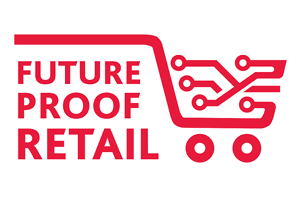Next Gen Digital Coupons

The Next Innovation in Personalization? The Customized Coupon
The year is 2044 and you’re on the way home from work in your fully autonomous vehicle, so you have some free time. You click on Instagram in your car’s holographic entertainment system and begin scrolling. You see an Instagram ad for a purse but you continue to scroll. You’ve seen this purse many times before, and while it is beautiful, you can never justify the splurge. But wait, was that a coupon? Yes, you’re being offered a unique coupon code for 30% off (Code: YOUR-NAME-30-OFF). You click the digital coupon, enter the code, order, and the purse is on its way to you just as your car pulls into your driveway.
In 20 years from now, many retailers will be pushing out personalized coupons into a variety of online platforms to reach potential customers where they are spending their online time and better convert shoppers like you into loyal customers.
Behind the scenes, several algorithms are crunching thousands of data points to determine the perfect discount that will get you to purchase. But this is more than today’s standard “HAPPY-BIRTHDAY” or similar coupon code — discount codes in the future will be highly tailored to your particular spending and search habits, meaning your friend who sees the same digital coupon on Instagram will likely have a different discount based on their data profile.
Today, discount codes, emailed coupons, QR codes, and loyalty apps have replaced the experience of clipping coupons from a catalog. According to a survey from United Natural Foods and Swiftly, nearly twice as many Americans use digital coupons over paper coupons. But in the retail world of tomorrow, the coupon and deals landscape will be transformed once again through data and personalization at scale. For retailers to future-proof their business with digital coupons they’ll need to invest in advanced data analytics and artificial intelligence (AI).

The future of digital coupons will allow retailers to fully personalize their prices using AI, data analytics, and advanced marketing technology (martech). By using generative AI to analyze vast amounts of consumer and pricing data, retailers can determine the ideal price for a specific product for a particular customer – known as a variable pricing strategy. Research from Capital One found that 75% of Americans who abandon their online shopping carts are influenced by cost and a lack of discounts, making strategic coupons a great way to lower abandonment rates. With a variable pricing strategy and digital coupons, the price one customer pays for an item may differ from another customer. The data collected in the process helps the retailer understand how to price their products and market their offers more effectively. With an informed pricing strategy and digital coupons, customers will feel they’re getting a special deal and a personalized experience, which generates increased consumer loyalty as well as the sale.
The Pricing May be Variable, but the Satisfied Customer is a Certainty
The concept of a variable pricing strategy is similar to how retailers use dynamic ads to personalize marketing messages to customers. Just as dynamic prices automatically update based on new data, dynamic and digital ads allow retailers to automatically adjust the ad copy and creative imagery based on what drives engagement with consumers. Ads can be hyper-targeted to the consumers who are most likely to buy, which tend to be those who have already interacted with the brand several times.
Think of dynamic ads as the ideal delivery mechanism for digital coupons. Ads can automatically update to show only products that are in stock, both online and at the customer’s nearest location. They automatically update to show the copy, creative, and products that resonate the most with a specific consumer. And because of their dynamic capabilities, they can be used to show unique and personalized coupon codes segmented by customer types.
Of course, the question is: How does the retailer know how to price an item for each customer? Retailers of the future will deploy sophisticated variable pricing models in combination with their digital marketing strategies to truly level up the customer shopping experience. Using an agile marketing approach, custom landing pages, and shopper data, retailers can easily tailor the price the user sees in the ad, amplifying the effectiveness of their variable pricing strategy.
Today's consumers demand hyper-personalized experiences, and a personalized price is no exception. Discover how to leverage generative AI to meet enhanced customer expectations in our insight: Hyper-Personalized Experiences through Automation and AI.
Perfect Pricing is Powered by Dynamic Data
Today’s retailers already collect vast amounts of data to determine their pricing and targeting strategies. Using generative AI and machine learning, they can precisely price their products based on demand, performance of past promotions, competition, and inventory levels. This analysis allows retailers to respond quickly and reprice their products based on shifting external factors. Generative AI can even help inform retailers on how to price their products in the future by forecasting demand for a product based on seasonal trends, historical data, and economic conditions, allowing retailers to set the equilibrium price to boost revenue.
With the powerful, predictive capabilities of AI, retailers can create a true dynamic pricing solution, where prices are personalized at scale based on past sales data and the individual attributes of the customer.

By integrating a variable pricing strategy with unique coupon codes, personalized landing pages, and an advanced and agile ad strategy, retailers will be able to more efficiently acquire new customers, as consumers get personalized deals on products they likely already were eyeing. Research from Capital One found that 86% of online shoppers are more likely to try a new business due to a coupon and 38% buy more than they intended when they have a coupon. Digital coupons also provide additional data points for retailers to track, including when, where, and how often a customer is making a purchase. And, if the customer uses the coupon code in person — such as bringing the QR code or mobile app to the store — it can help the retailer determine if they need to adjust their pricing strategy at that location.
Finally, to test how customers are responding to their variable pricing strategy, retailers may want to conduct a sentiment analysis, looking into customer reviews, social media habits, and other data sources to gauge how customers are responding to the dynamic prices and coupon codes. Retailers will want to be mindful of keeping their pricing fair — some customers may be frustrated if they learn they are paying more for the same product compared to a friend or family member. Communicate to customers about how dynamic pricing and personalized coupons allow them access to custom deals rather than tools meant for the retailer to enable surcharges.
Using customer data to inform marketing and pricing strategy? Don't get caught with a compliance snafu on your hands. Learn about key data privacy regulations and how to comply in our insight: Data Privacy and What You Need to Know.
Get Off the Pricing Roller Coaster and Generate Demand
BDO understands today’s sophisticated digital marketing, data analytics, and generative AI technologies. We can help you build a marketing and pricing strategy that fuels your demand streams.
Our revenue generation strategy and consulting team can analyze your current marketing tech setup and determine how a dynamic ad strategy can improve customer targeting.
We leverage analytics and AI to draw critical insights from customer intent data, competitor data, and market factors to help you develop a flexible pricing solution, allowing you to unlock value from the data you are already collecting.
By combining our retail industry experience with our digital services, BDO professionals can work with you to future-proof your business.
Ready to Digitize Your Discounts?
BDO’s Retail and Consumer Products professionals to learn how our team can collaborate with you on a future-proofed marketing strategy that will help your business reach key customers and build brand loyalty.